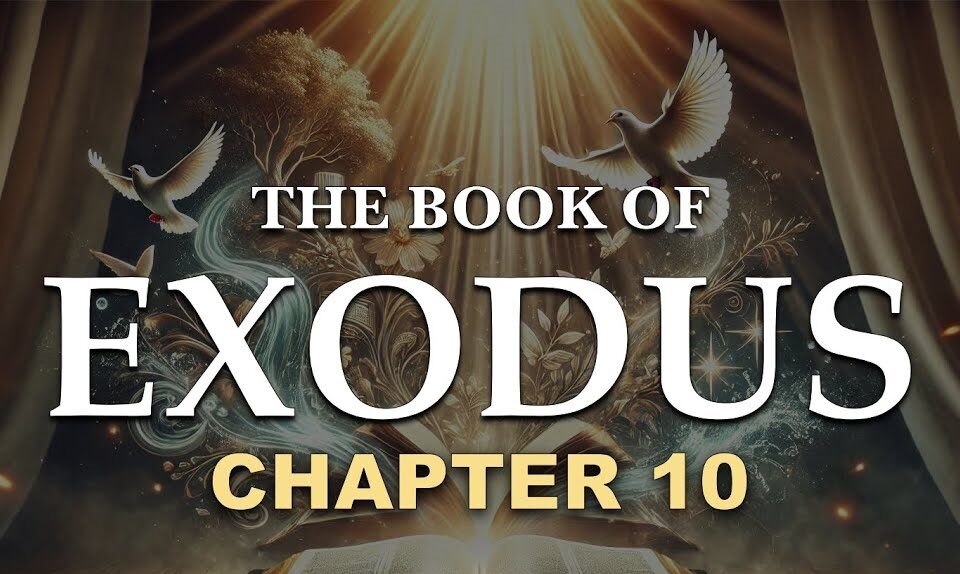Divine Retreat Centre UK – Official Website

Dewfall – 1
July 11, 2024
12 Unlikely Heroines from the Old Testament – Chapter 1 – LEAH
August 12, 2024Why do we reflect on the genealogy of Jesus during the Christmas season? The genealogy contains hidden insights that make it worthwhile for reflection. It is mentioned in the Bible as part of the Jewish custom, where it is prophesied about the coming Messiah. The tribe of Judah and the ancestors of David maintained their genealogy to prove that they were the chosen ones, eagerly anticipating the Messiah within their lineage. The Gospel of Matthew begins with the genealogy, affirming that the Gospel is not a fairy tale but a record of real-life events. This truth is evident, as Matthew wrote it shortly after the death of Jesus Christ, at a time when the descendants of Judah and the family members of Jesus were still alive.
To understand the background, it’s important to note that Matthew, a tax collector, was an organized person and proficient writer. He was the first apostle to document the incidents in order. The Gospel of Matthew is one of the three Synoptic Gospels—Matthew, Mark, and Luke—all of Hebrew origin. Matthew, one of the twelve apostles, wrote the first Gospel, as Mark and Luke were not apostles.
Matthew addresses the Jewish people in his Gospel, using terms like “korban” and “akra,” which were familiar to them.
When God chose Abraham, Isaac, and Jacob, they were led through a journey that ended in Egypt. God then sent Moses to lead the Israelites to the Promised Land, a land full of blessings and protection. The Old Testament frequently focuses on the “Promised Land.” Even today, Israel is seen as the Promised Land.
Deuteronomy 28:1-14 states that if the Israelites diligently observe all of God’s commandments, the Lord will set them high above all the nations. These verses promise blessings for obedience, including prosperity, victory over enemies, and divine favor in all endeavors. The focus of Israel has always been on this land, and even today, they are committed to establishing and maintaining it. However, with the advent of John the Baptist, a significant shift began.
Matthew 3:2 says, “Repent, for the kingdom of heaven has come near.” While Israel was focused on a worldly kingdom, John the Baptist called for repentance, emphasizing that the Kingdom of Heaven was near.
In Matthew 4:17, Jesus began to proclaim, “Repent, for the kingdom of heaven has come near.” The Jewish people found it difficult to accept this new focus on repentance and the Kingdom of Heaven rather than a worldly kingdom. This marked a significant twist. Jesus also said that in this world, there will be persecution, which continues even today.
Why do we still suffer in the world today? This is not the kingdom that God ultimately intended for us; it is only a transitional period. Our true kingdom is heaven-oriented. We Christians often focus on building our own kingdoms here on earth. Even in God’s presence, we frequently pray for security, protection, jobs, and other earthly concerns.
In the Gospel of Matthew, the phrase “kingdom of heaven” is mentioned at least thirty times. Even Jesus said, “My kingdom does not belong to this world but to another world” (cf. John 18:36).
1 Corinthians 15:19 says, “If for this life only we have hoped in Christ, we are of all people most to be pitied.” Many of us come to Jesus seeking healing and deliverance because He is powerful. We tend to believe that by aligning ourselves with Jesus, everything will be safe for us here on earth. But if our hope is limited to this life, we are missing the bigger picture.
What is the specialty of the other world? Let’s explore some passages from Scripture:
John 14:2-3 states, “In my Father’s house there are many dwelling places. If it were not so, would I have told you that I am going to prepare a place for you? And if I go and prepare a place for you, I will come again and will take you to myself, so that where I am, there you may be also.” Jesus, who died, rose again, and ascended to Heaven, assures us that there is a place for us in Heaven. If Jesus lives eternally, so will we. Heaven is our final destination; it is what we are journeying towards. So why are we so attached to this temporary world? Our attachment to the world is the reason for much of our suffering, which is a clear sign that this is not our ultimate home.
Hebrews 12:22 says, “But you have come to Mount Zion and to the city of the living God, the heavenly Jerusalem, and to innumerable angels in festal gathering.” The land of Israel is only a shadow of the original Jerusalem in Heaven.
Revelation 21:3-4 states, “And I heard a loud voice from the throne saying, ‘See, the home of God is among mortals. He will dwell with them as their God; they will be his peoples, and God himself will be with them; he will wipe every tear from their eyes. Death will be no more; mourning and crying and pain will be no more, for the first things have passed away.'” Our current world is filled with irritations and trials, but Jesus promises that once we are with Him, we will dwell with our Heavenly Father. We must detach our hearts from this world and attach them to Heaven, where God our Father dwells, or else we will remain in sorrow and continue to complain.
Revelation 3:4-8 speaks of the few persons in Sardis who have not soiled their clothes; they will walk with Christ, dressed in white, for they are worthy. Once we enter Heaven, there will be no marriage, jealousy, or gossip; all will be holy. If we conquer, we will be clothed in white robes, and our names will not be blotted out from the book of life. Jesus will confess our names before the Father and His angels.
Revelation 14:13 says, “And I heard a voice from heaven saying, ‘Write this: Blessed are the dead who from now on die in the Lord.’ ‘Yes,’ says the Spirit, ‘they will rest from their labors, for their deeds follow them.'” We will enter the Heavenly paradise, and we should rest assured that the Jerusalem temple cannot be destroyed.
Revelation 7:14-15 states, “I said to him, ‘Sir, you are the one that knows.’ Then he said to me, ‘These are they who have come out of the great ordeal; they have washed their robes and made them white in the blood of the Lamb. For this reason, they are before the throne of God, and worship Him day and night within His temple, and the one who is seated on the throne will shelter them.'” The 144,000 mentioned in Revelation symbolize the perfect number, comprising the twelve tribes from both the Old and New Testaments and all who followed them. We are all journeying towards this Heavenly temple in Mount Zion.
Revelation 22:3-5 says, “Nothing accursed will be found there anymore. But the throne of God and of the Lamb will be in it, and His servants will worship Him; they will see His face, and His name will be on their foreheads. There will be no more night; they will not need the light of a lamp or the sun, for the Lord God will be their light, and they will reign forever and ever.”
In the genealogy of Jesus, the kingship begins with David, followed by Solomon and the other kings, with Joseph as the last in the hierarchy. If kingship had still been in effect at the time, Joseph would have been the next king. As the son of Joseph, Jesus is the legal heir to David’s throne, through both His mother Mary and Joseph, who were both descendants of David.
In Jewish genealogy, women were rarely mentioned because they were not highly regarded. Pagans did not even consider women as human beings, but the Jewish people were somewhat more respectful. Jewish men would pray to God, thanking Him for not creating them as Gentiles, slaves, or women.
However, Matthew intentionally mentions four women in the genealogy of Jesus: Tamar, Rahab (a prostitute in Jericho), Ruth (a Gentile), and Bathsheba (who was involved in an adulterous relationship with David). These four women are among the grandmothers of Jesus. Matthew wanted to make it clear to the Jews that the New Testament is not what they expected. In Jesus Christ, every sinner is welcomed. All will be saved when they repent, reconcile, accept Jesus as Lord and Savior, and receive His Body and Blood; they will become part of the genealogy of Jesus, joining one family in Heavenly Jerusalem.
Matthew 1:17 summarizes the genealogy: “So all the generations from Abraham to David are fourteen generations; and from David to the deportation to Babylon, fourteen generations; and from the deportation to Babylon to the Messiah, fourteen generations.” This shows God’s faithfulness even in times of downfall when we become slaves to sin. He will lift us up, protect, and care for us. We will always be the head and not the tail.
The “mark of the beast,” 666, refers to humanity, created on the sixth day and brought into covenant with God on the seventh day, which God blessed as the Sabbath. It was also the day Adam and Eve were married. The number seven represents perfection, peace, and rest. The fourteen generations mentioned three times symbolize the covenant with the Lord, as inspired by the Holy Spirit through Matthew’s writing.




